25 Travel Mistakes You’re Probably Making Without Even Realizing It
Traveling opens up the world, but even the savviest globetrotters fall into traps that can turn dream vacations into stressful ordeals. The catch? It’s usually not the big, obvious mistakes—like forgetting your passport or missing a flight. It’s the subtle, easily overlooked slip-ups that quietly sabotage your trip. From over-packing and underestimating local customs to ignoring jet lag or skipping travel insurance, these small missteps can lead to wasted time, extra expenses, or missed experiences. To help you travel smarter, smoother, and with fewer “I wish I’d known” moments, we’ve expanded our guide to 25 often-overlooked travel mistakes—and more importantly, how to avoid them. Whether you're a frequent flyer or planning your first big adventure, these tips will help you maximize every trip, save money, and reduce stress. Because the best kind of travel is the kind where you’re fully present—and fully prepared. Let’s dive in!
1. Over-Reliance on Ride-Share Apps Instead of Learning Public Transport

Ride-share apps like Uber, Lyft, and Bolt have made getting around incredibly easy, especially in unfamiliar destinations. However, relying on them for every ride can quickly drain your budget, especially in cities where prices surge during peak hours. More importantly, sticking solely to ride-shares can limit your experience, keeping you in a bubble instead of immersing you in the local rhythm. In some places, public transportation is not only cheaper but also faster and more reliable than cars stuck in city traffic. Before arriving at your destination, research the city’s public transport system. Many places offer affordable day passes or tourist-friendly metro cards that allow unlimited travel on buses, trams, and subways. Some transport passes even include discounts on museums, attractions, or ferry rides. While ride-shares have their place—such as late-night rides in unfamiliar areas—learning how to use public transport will save you money, help you experience the city like a local, and make you a more confident traveler.
2. Failing to Download Offline Maps & Key Travel Info

Many travelers assume they’ll have reliable internet access everywhere—until they find themselves in an underground metro station, a rural town, or on a flight with no Wi-Fi. Relying solely on Google Maps without downloading offline maps can leave you lost, frustrated, and scrambling for directions when you most need them. Unexpected issues, like your phone running out of battery, spotty international roaming, or arriving at a destination late at night with no service, can quickly turn a simple navigation issue into a stressful situation. To avoid this, download offline maps of your destination before you leave home using Google Maps, Maps.me, or Citymapper. This way, even without internet access, you can still find your way around. Additionally, take screenshots of key travel information, such as your hotel address in the local language, metro or bus schedules, and emergency contact numbers. If your phone dies or the internet fails, you’ll still have everything you need at your fingertips. It’s a simple step that can save you time, stress, and money when exploring a new place.
3. Booking Too Many Activities in Advance
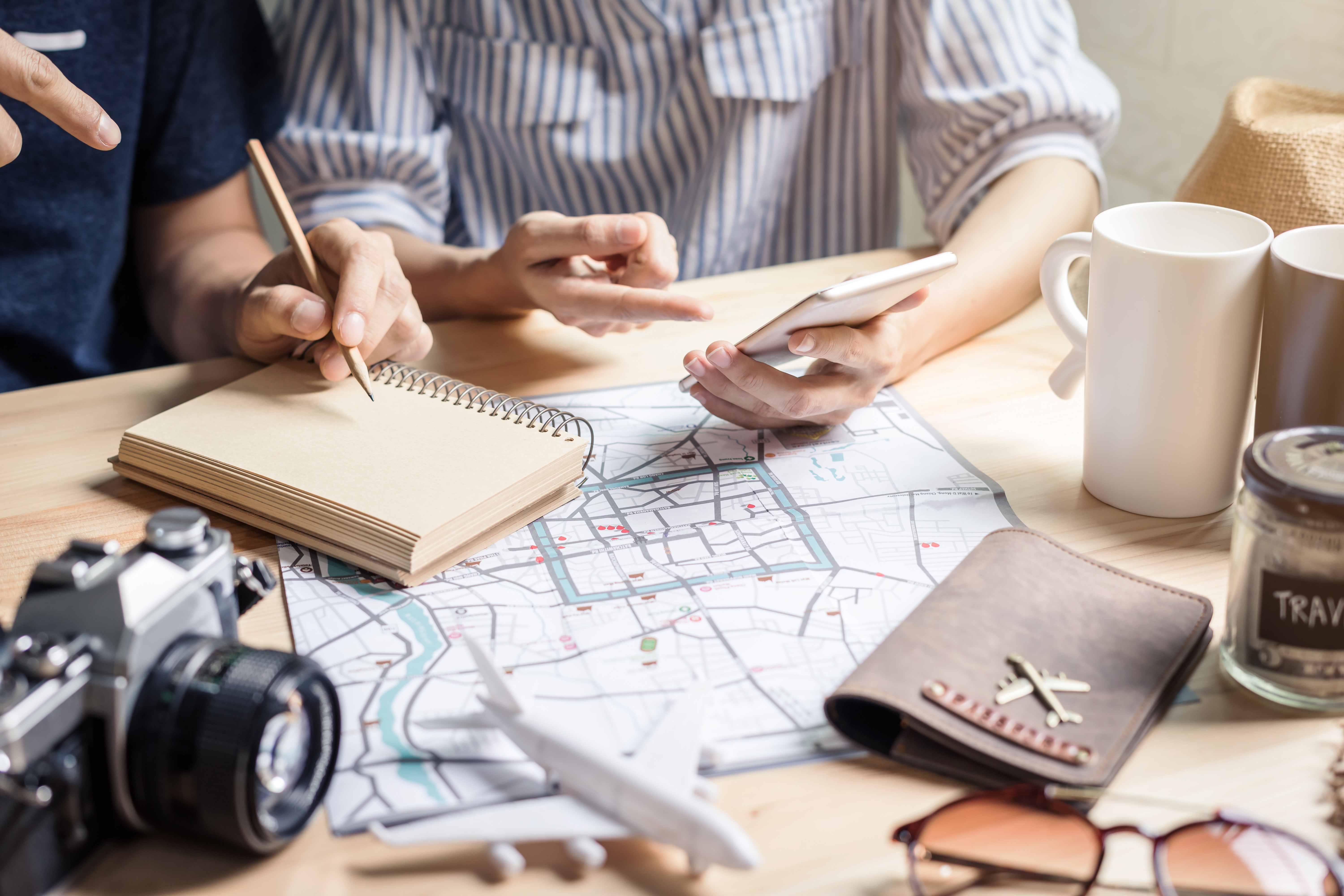
Pre-booking experiences like tours, day trips, and activities seems like a smart way to avoid missing out, but overloading your itinerary can backfire. Scheduling too many things in advance leaves no room for flexibility, forcing you to stick to a rigid schedule instead of embracing spontaneous opportunities. Worse, if you arrive at your destination and discover something better—like a local festival, an unplanned hiking adventure, or a hidden gem a fellow traveler recommends—you might regret being locked into pre-paid plans.Instead of overbooking, strike a balance. Secure tickets for high-demand attractions that might sell out, such as the Eiffel Tower, Machu Picchu, or the Colosseum. But for other experiences, leave gaps in your itinerary. Wander through the streets, talk to locals, and discover things you wouldn’t have found on a travel website. Some of the best travel moments happen when you let the adventure unfold naturally rather than sticking to a checklist. Travel is about experiencing, not just scheduling.
4. Not Carrying Emergency Cash in Local Currency

In an increasingly cashless world, many travelers assume they can rely solely on credit cards, Apple Pay, or digital wallets. However, this can be a major mistake when visiting countries where cash is still king. Even in modern cities, some small businesses, local markets, taxis, or street vendors still only accept cash. Worse, if your card gets declined, lost, or stolen, you could find yourself in a stressful situation without a way to pay for transport, food, or emergency needs. To avoid this, always carry a small amount of local currency—enough to cover transportation, food, and small purchases for at least a day. Avoid airport currency exchanges (which often have terrible rates and high fees). Instead, use ATMs inside reputable banks, as they typically offer the best exchange rates with lower transaction fees. If possible, notify your bank of your travels to prevent suspicious activity blocks on your card. Having a backup payment method—whether it’s cash, a second credit card, or a prepaid travel card—ensures that you’re never stuck in an emergency without a way to pay.
5. Ignoring Travel Scams & Assuming “It Won’t Happen to Me”

It’s easy to assume that only naive tourists fall for travel scams, but even the most seasoned travelers can be caught off guard. Many scams are so well-orchestrated that they feel completely natural—until you realize you’ve been tricked. From fake ATM assistants to overpriced taxis, rigged currency exchanges, or pickpockets using distraction tactics, scammers prey on confident travelers who believe they’re too smart to fall victim. Some travelers brush off warnings, thinking, “That would never happen to me”—until it does, turning what should be an amazing trip into a frustrating (or expensive) mistake. The best defense is awareness. Before arriving, research common scams in your destination so you know what to watch out for. Be wary of unsolicited help, such as a stranger offering to carry your luggage, assist with an ATM, or give “free” bracelets or souvenirs. Trust your instincts—if something feels off, walk away. Staying alert, skeptical, and informed can save you from costly or stressful situations.
6. Using Hotel Safes Without Extra Security Precautions
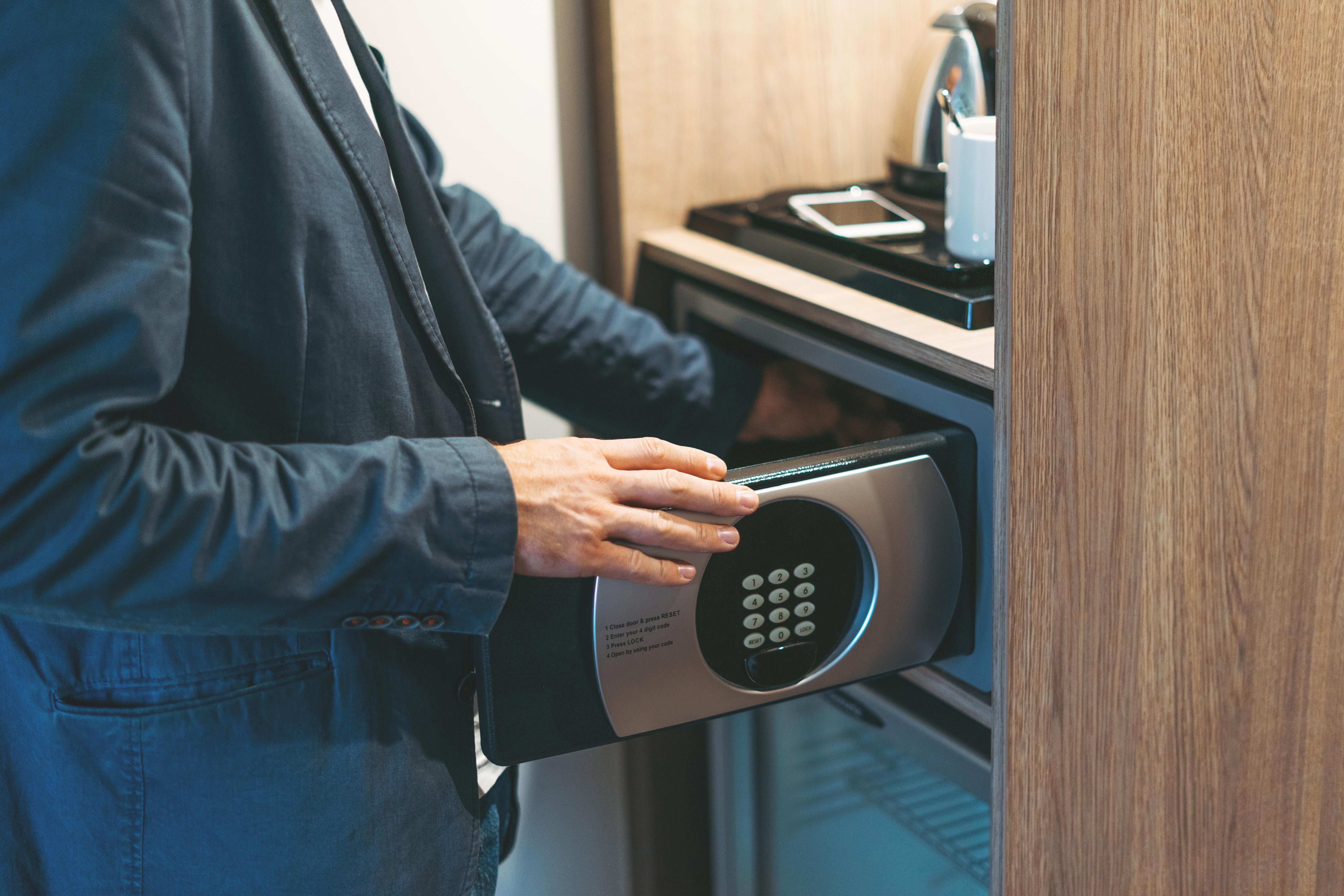
Many travelers assume that hotel safes are foolproof, but in reality, they can be surprisingly easy to open. Some hotels use default master codes, allowing staff or even previous guests to access them. Others use low-quality locks that can be cracked in seconds. Even high-end hotels aren’t immune to theft—there have been cases where valuables have gone missing from locked safes without any sign of forced entry. Leaving all your valuables in a hotel safe without extra precautions can be a risky move.To improve security, take additional steps. If you must use a hotel safe, test it first by locking it and making sure it won’t open with a generic code (such as 0000 or 1234). Some travelers place a piece of tape or a hair over the safe door—if it’s moved when you return, you’ll know someone accessed it. A portable travel safe or anti-theft pouch adds another layer of security for passports and cash. When in doubt, keep the most important items with you instead of assuming the safe is truly “safe.”
7. Not Checking Your Passport’s Expiry & Visa Rules in Advance
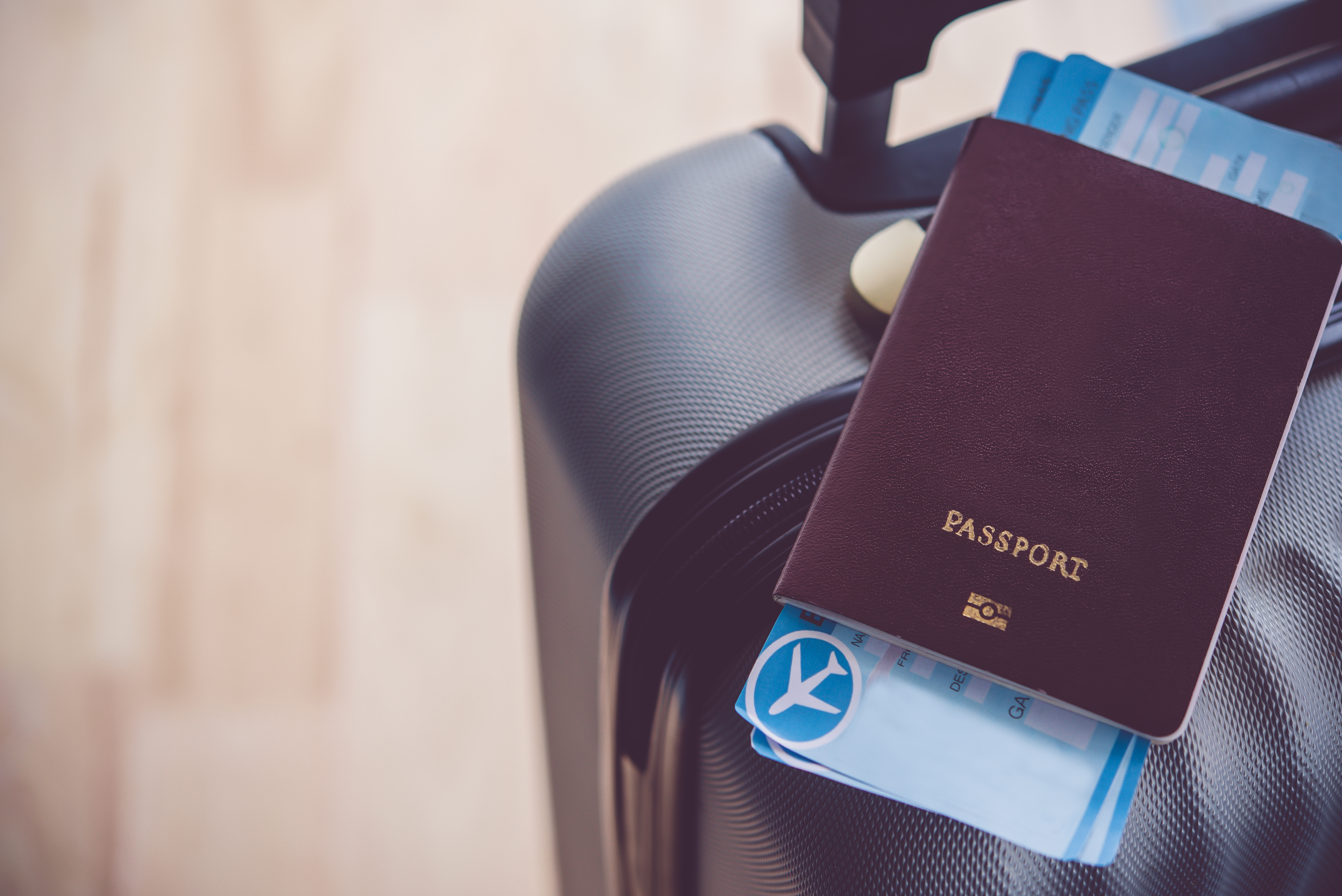
Many travelers assume that if their passport is valid, they’re good to go. Unfortunately, that’s not always the case. Many countries require at least six months’ validity beyond your departure date. That means if your passport expires in four months, you could be denied entry at the airport—even if you have a return ticket before it expires. Similarly, visa requirements vary widely, and some destinations require applications weeks or months in advance. Waiting until the last minute can leave you scrambling, rebooking flights, or even canceling your trip entirely.Avoid this mistake by checking your passport and visa requirements well in advance. If your passport is close to the six-month mark, renew it before you book your trip to avoid last-minute stress. Research visa policies for your destination, as some places allow visa-free entry, while others require pre-approval, paperwork, or even in-person interviews. Taking a few minutes to check these details months before your trip can save you from a major travel headache later.
8. Drinking Tap Water Without Researching Safety

Many travelers assume that tap water is universally safe, especially in developed countries. However, even in modern cities, water quality can vary, and locals may have built up immunity to bacteria that could cause severe stomach issues for visitors. In some places, the water may contain higher mineral content, different purification chemicals, or contaminants that your body isn’t accustomed to. A small mistake—like brushing your teeth with unsafe water—can lead to an uncomfortable (or even dangerous) bout of traveler’s diarrhea. Fix it: Research water safety guidelines before your trip. If tap water isn’t recommended, stick to sealed bottled water or bring a filtered travel bottle like a Lifestraw or Grayl, which removes bacteria and parasites. If you’re staying long-term, consider using water purification tablets or a UV sterilizer like the SteriPEN. Avoid ice cubes and check if restaurants use filtered water before ordering drinks.
9. Not Informing Your Bank of Travel Plans

One of the worst feelings when traveling is having your credit or debit card declined at a crucial moment—when checking into a hotel, paying for dinner, or withdrawing cash at an ATM. Many banks automatically flag foreign transactions as suspicious to prevent fraud, which can lead to your account being temporarily frozen. If you haven’t set up travel notifications in advance, you may be stuck without access to your funds until you can contact your bank (which isn’t always easy in a different time zone). Fix it: Before your trip, log into your online banking account or call your bank to notify them of your travel plans. Provide details about which countries you’ll be visiting and your travel dates so they don’t flag legitimate transactions as fraud. Some banks have travel-friendly features that allow you to authorize transactions through mobile apps in real-time. Additionally, always carry multiple forms of payment (cash, debit, and credit cards) in case one method fails.
10. Overlooking Airport & Airline Policies
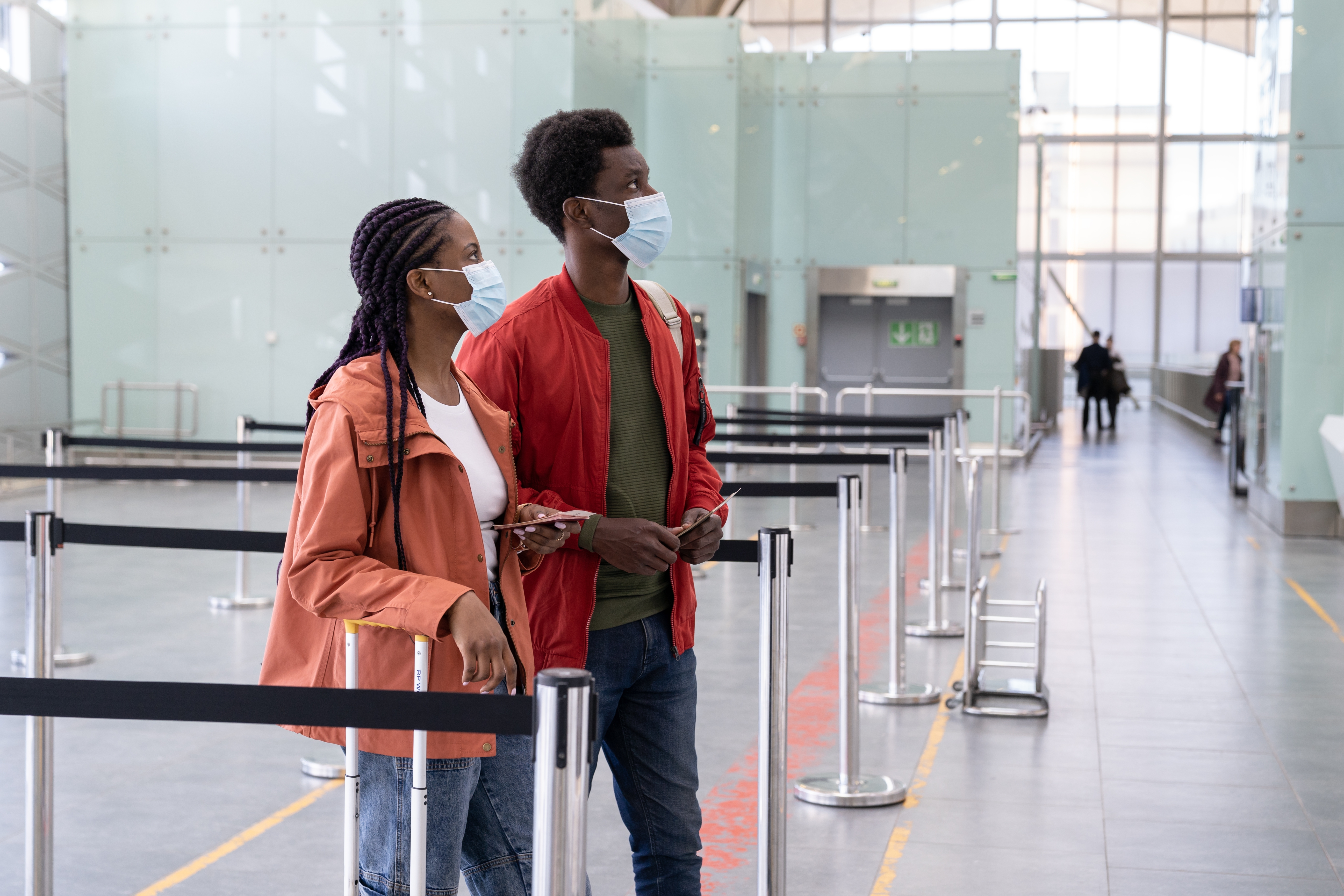
Every airline has different rules for baggage, check-in procedures, and in-flight services, and assuming they’re all the same can result in unexpected fees, lost luggage, or unnecessary stress. Some budget airlines charge extra for carry-ons, while others may have strict size limits for personal items. If you don’t double-check policies, you might arrive at the airport only to face last-minute charges or be forced to check a bag you expected to carry on. Even more frustrating? Some airlines require you to print your boarding pass (and will charge you if you don’t). Fix it: Read your airline’s baggage policies carefully before your trip. If flying a budget airline, confirm whether your ticket includes a free carry-on or if you need to pay extra. For international flights, check whether you need a visa or transit authorization—some countries require proof of an onward ticket before letting you board. If possible, download your airline’s app to stay updated on delays, gate changes, and check-in requirements. A little preparation can save you from surprise fees and frustration.
11. Using ATMs Without Checking for Skimmers

ATMs in high-traffic tourist areas are prime targets for scammers who install card skimmers—tiny devices that steal your credit or debit card information without you even noticing. Skimmers are often placed over the card slot or keypad, and some ATMs may also have hidden cameras capturing PIN entries. If you use a compromised ATM, your bank details can be cloned, leading to fraudulent withdrawals or charges that can drain your account before you even realize what’s happening. Fix it: Only use ATMs inside banks or secured buildings, as they are much less likely to have skimmers than standalone machines on the street. Before inserting your card, inspect the ATM carefully—if the card slot or keypad feels loose, looks misaligned, or appears tampered with, find another ATM. Cover the keypad with your hand when entering your PIN to prevent hidden cameras from capturing it. If your bank offers contactless withdrawal via an app, use that instead of inserting your card.
12. Forgetting to Learn Basic Local Phrases

Many travelers assume that English is widely spoken wherever they go, but this isn't always the case. While major cities and tourist hubs may have English-speaking staff, venturing into smaller towns, local markets, or non-touristy areas can present a language barrier. Expecting locals to accommodate you without attempting to learn any of their language can not only cause miscommunication but may also come across as disrespectful. Being unable to ask for simple things like directions, food, or transportation can turn a smooth trip into a frustrating experience. The best way to prevent this is to learn a few key phrases before your trip. Even if your pronunciation isn’t perfect, locals will appreciate the effort. Focus on basic greetings, polite expressions, and essential questions, such as “Where is the bathroom?” or “How much does this cost?” Apps like Google Translate work wonders offline, allowing you to type, speak, or even scan text for instant translations when needed.
13. Falling for “Too Good to Be True” Travel Deals
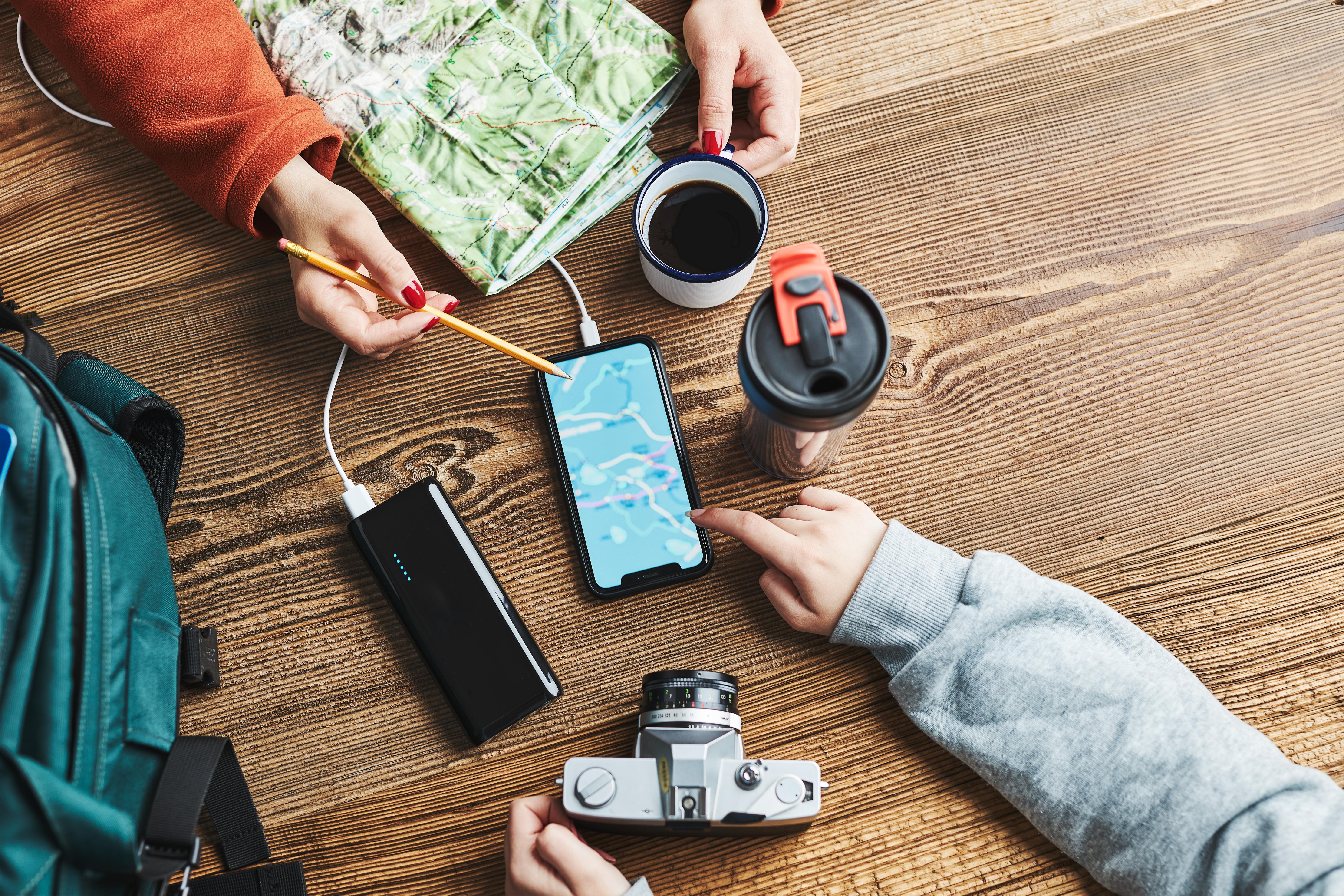
Everyone loves a bargain, but unbelievably cheap travel deals are often red flags. Scammers frequently lure tourists with heavily discounted tour packages, fake attraction tickets, or luxury hotels at unbelievably low prices. Many of these deals are designed to take your money upfront while delivering a poor experience—or nothing at all. Common scams include tour operators who charge low rates but drop travelers at overpriced souvenir shops for commission or hotels that look amazing in photos but turn out to be in poor condition or nonexistent. To avoid being scammed, book through reputable platforms such as airline websites, trusted travel agencies, or verified booking sites. Read recent reviews from fellow travelers rather than relying solely on promotional materials. Be cautious of pressure sales tactics—if someone insists that you book “right now” or offers a deal that seems way too good, step back and do more research. When in doubt, trust word-of-mouth recommendations from fellow travelers over flashy online ads.
14. Not Leaving Room in Your Luggage for Souvenirs

One of the biggest travel mistakes people make is packing their suitcase to the absolute limit before they even leave home. While it might seem like a good idea to bring everything you might need, it leaves no room for souvenirs, gifts, or unexpected purchases. Many travelers end up buying unique items—whether it’s handmade crafts, local clothing, or specialty foods—only to realize their luggage is already stuffed. Worse, some have to pay hefty overweight baggage fees or leave items behind. The solution? Pack with extra space in mind. If you know you like to shop while traveling, pack light or bring a foldable duffel bag that you can check in on your way home. Many places also offer affordable international shipping options, which can be a better alternative to lugging heavy items through airports. If you’re purchasing fragile souvenirs, pack them carefully between soft clothing to prevent breakage. Thinking ahead ensures you can bring home meaningful keepsakes without the last-minute packing stress.
15. Forgetting to Stop and Enjoy the Moment

With detailed itineraries, bucket lists, and the pressure to see and do everything, many travelers fall into the trap of rushing from one attraction to the next without actually experiencing the journey. It's easy to get caught up in taking photos, following Google Maps, or making sure you check off all the "must-see" spots, but in doing so, you risk missing the magic of the moment. Travel isn’t just about seeing famous landmarks—it’s about how a place makes you feel, the connections you make, and the small unexpected moments that make a trip special. To truly savor your travels, slow down and be present. Instead of just snapping a picture of a stunning view, take a deep breath and let yourself absorb it. Enjoy the sounds, smells, and atmosphere of the destination. Put your phone down at meals and truly savor the flavors of the local cuisine. Some of the best travel experiences come when you least expect them—through spontaneous conversations, getting lost in a charming neighborhood, or simply watching the world go by at a café. Give yourself permission to let go of the checklist and just enjoy being in a new place.
16. Skipping Travel Insurance—Until It’s Too Late
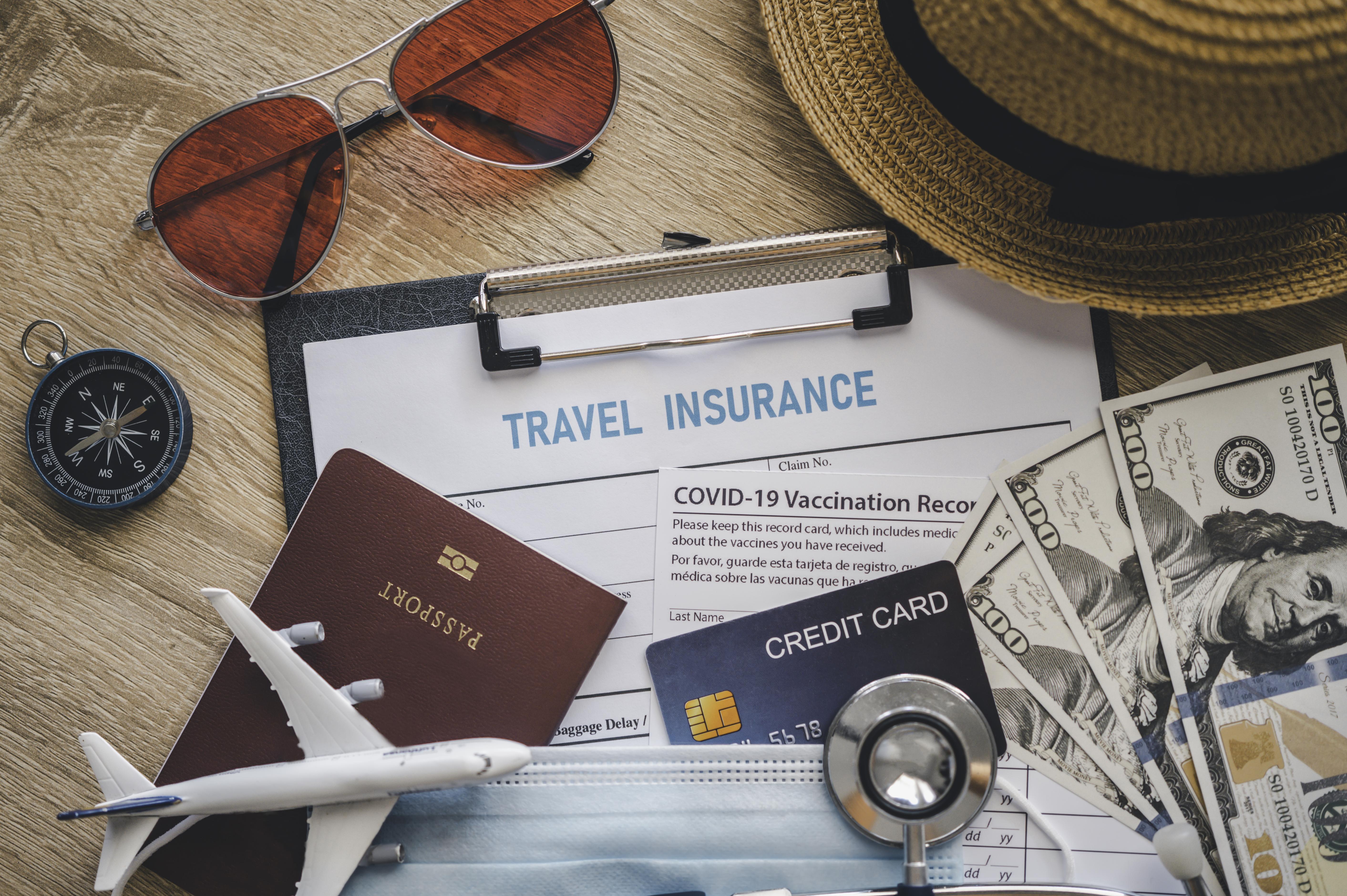
Travel insurance often feels like one of those "optional" extras—until something goes wrong. Then it quickly becomes the thing you wish you had. Many travelers skip it to save a bit of money, assuming nothing will happen. But accidents, delays, lost luggage, illness, or even geopolitical events can upend your plans in seconds. A broken ankle abroad? That could run you thousands in hospital bills. A canceled flight due to weather or a missed connection? Without insurance, you’re likely footing the bill. The truth is, travel insurance isn't just for adrenaline junkies climbing mountains or diving coral reefs. It's a safety net for everyday travelers too. Most policies cover trip interruptions, emergency medical care, evacuation, lost baggage, and theft. Some even reimburse you if your hotel room is infested or your Airbnb falls through. The key is choosing the right coverage for your needs. If you're traveling to a remote area or have tight connections, comprehensive coverage is worth the extra cost. And if your plans are still in flux, consider upgrading to “cancel for any reason” (CFAR) coverage—it costs a bit more but gives you ultimate flexibility. Before you travel, take five minutes to read the fine print of your policy: know what’s covered (and what’s not), where to call in an emergency, and what documents you'll need to file a claim. A little preparation goes a long way—and might just save your trip (and your wallet).
17. Forgetting to Check Local Holidays and Festivals

Imagine arriving in a new city only to find everything closed: restaurants, banks, attractions—even public transit. Or worse, you land during a massive local festival and can't find a single available hotel room. It happens more often than you'd think—and it’s usually the result of forgetting to check the local calendar before booking. National holidays, regional celebrations, religious observances, and cultural events can drastically alter a destination’s rhythm. But it’s not all downside. Sometimes, stumbling upon a local celebration becomes the highlight of your trip. Watching vibrant parades, participating in food festivals, or observing traditional ceremonies can offer a deeper, more meaningful connection to the culture—if you’re prepared for the crowds, closures, and possible price hikes. To avoid surprises, always research the national and local holidays of your destination—down to the city level if possible. Look beyond public closures and consider how holidays may impact transportation, accommodation prices, and even safety. For example, some countries see large-scale protests or demonstrations around certain dates. Others may have dry days where alcohol isn’t sold. If you're open to adjusting your schedule, arriving for (or avoiding) major events can make all the difference. A little awareness turns potential chaos into cultural immersion.
18. Not Backing Up Important Documents Digitally

Physical copies of your passport, travel insurance, and boarding passes are useful—but what happens if your bag gets stolen, you drop your phone, or your hotel burns down (hey, it’s happened)? In an age of digital everything, failing to back up your essential travel documents is a risk you don’t need to take. A few minutes of prep before you leave can save hours of headaches—and possibly your whole trip. Scan or photograph your passport, visas, vaccination records, insurance cards, prescription medications, tickets, hotel bookings, and emergency contacts. Store them in multiple places: your email, a cloud-based drive like Google Drive or Dropbox, and even an encrypted app like 1Password. Bonus points if you bring a physical copy in a separate part of your luggage. If something goes missing, you’ll have proof of identity to help with embassy visits, replacement passports, or police reports. And having your itinerary and medical info backed up can make emergency assistance quicker and easier. Pro tip: Take photos of your checked luggage and any high-value items you're bringing. If you need to file a lost bag or insurance claim, visual evidence helps immensely. Digital backups don’t take up space, but they offer serious peace of mind.
19. Packing the Wrong Shoes for the Trip
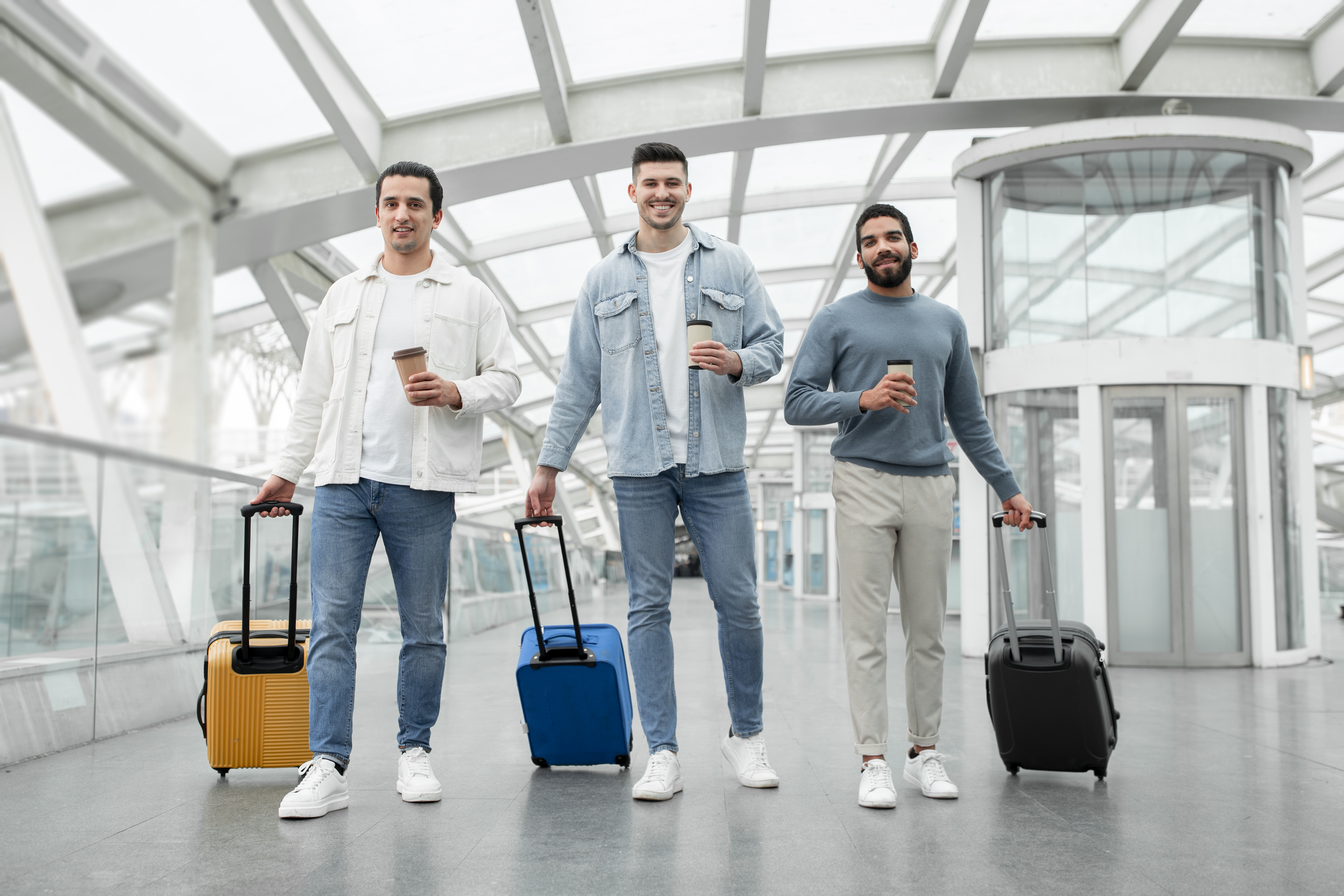
A trip can unravel surprisingly fast when your feet give out. Packing the wrong shoes is one of the most common—and painful—mistakes travelers make. You might be tempted to prioritize fashion or pack those cute new sneakers, but if they’re not comfortable for long distances or haven’t been broken in, you’re setting yourself up for a blister-filled nightmare. Walking is often the main mode of exploration when traveling—especially in historic cities with cobblestone streets, uneven terrain, or long lines at major attractions. And if you’re hiking, biking, or heading to a destination with mixed weather, the wrong shoes can be both miserable and unsafe. Wet feet, twisted ankles, and sore arches aren’t part of anyone’s dream vacation. The solution? Pack at least one pair of reliable, well-worn shoes designed for walking or your specific activities. If possible, bring a second lightweight pair—something breathable like slides or sandals for evenings, the beach, or hostel showers. Consider compression socks or blister patches as part of your travel essentials, especially if you're prone to foot pain. And remember, it’s not just about comfort. Shoes are often the hardest item to replace mid-trip. Your destination may not have your size or preferred style, and buying new shoes on the road can be costly and time-consuming. Good footwear = good travel.
20. Assuming Airport Lounge Access is Only for First-Class Flyers

Think airport lounges are reserved for champagne-sipping first-class travelers? Think again. One of the best-kept secrets in modern travel is that almost anyone can access lounges—you just need to know how. Many premium travel credit cards (like the Chase Sapphire Reserve or Amex Platinum) offer complimentary access to lounge networks like Priority Pass. Even without a fancy card, you can often buy single-entry passes through apps like LoungeBuddy or directly from the airline. And the benefits? Worth every penny—especially during long layovers, delays, or red-eye flights. Lounges typically offer comfy seating, free snacks and drinks (including alcohol), strong Wi-Fi, clean restrooms, and often even showers or nap areas. Some even include spa treatments, kids’ rooms, and hot meals. Compared to the chaos of the main terminal, it’s a serene, productive oasis. If you’re traveling on a budget or through low-cost airlines, lounge access can be the perfect upgrade that doesn’t break the bank. On a long layover, $30 for access could be cheaper than buying a meal and multiple coffees in the terminal anyway. Do a little research before your trip—check whether your departure or connection airport has lounges you can access, and see what benefits your credit cards or frequent flyer memberships offer. You don’t have to fly first class to travel like it.
21. Not Researching Local Tipping Customs

Tipping etiquette is one of the most overlooked aspects of travel prep—but it can significantly impact your budget and your interactions with locals. In some countries, like the United States or Canada, tipping 15–20% is customary and expected in restaurants, taxis, and even salons. In other places, like Japan or South Korea, tipping is not part of the culture at all—and offering extra money may even cause confusion or offense. In many European countries, a service charge is often included in the bill, meaning an additional tip is optional or nominal. Meanwhile, in parts of the Middle East or Africa, tipping is expected everywhere—from the porter who carries your bag to the person who pours your tea. Failing to understand the local norm can either leave you looking rude or cost you more than necessary. Beyond restaurants, remember to check tipping expectations for tour guides, hotel housekeeping, taxi drivers, and spa workers. Some cultures have fixed tipping amounts or specific practices, like rounding up or leaving cash discreetly. Doing a quick search before you go can help you travel more respectfully, avoid awkward moments, and better connect with locals. Bonus tip: carry small denominations in the local currency so you’re always prepared to tip appropriately when needed.
22. Booking Tight Layovers Without Buffer Time
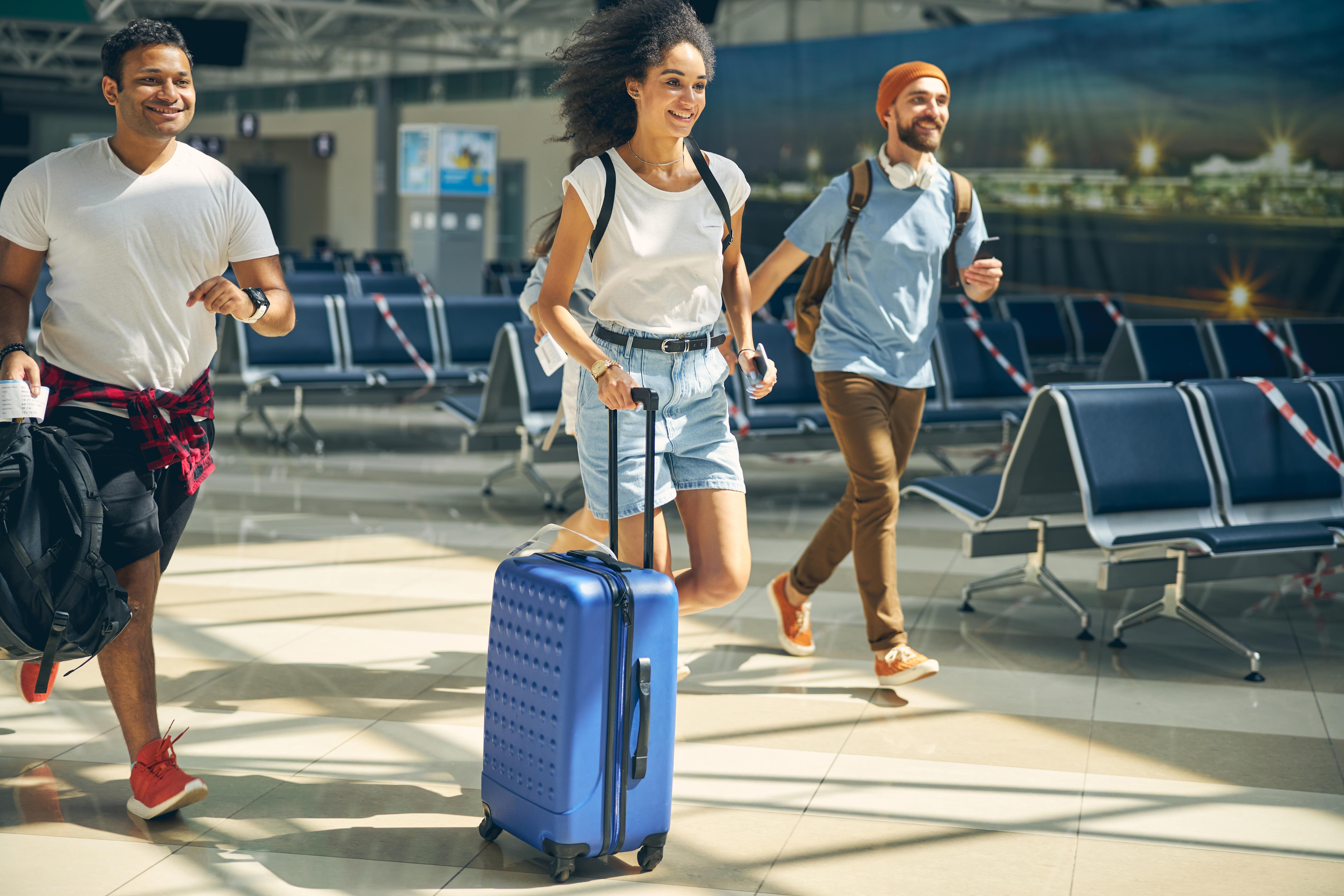
When booking flights, it’s tempting to choose the shortest layover possible to get to your destination faster. But those 45-minute or one-hour connections that look efficient on paper can quickly turn into a traveler’s nightmare. Delays, long taxi times on the tarmac, immigration lines, and terminal changes can all eat up precious minutes—and suddenly, your “tight” layover becomes a missed connection. This is especially risky when switching airlines that don’t share luggage agreements or if you’re flying internationally and need to re-check bags or go through customs. Missed connections often lead to long rebooking lines, additional fees, or even having to spend the night in an airport hotel at your own expense. It’s far better to build in a buffer—especially if you're traveling through large, complex airports like JFK, Heathrow, or Charles de Gaulle. For domestic flights, allow at least 1 to 1.5 hours; for international connections, aim for 2 hours or more. If you're changing airports entirely (hello, London!), give yourself at least 4–5 hours. Having a cushion not only reduces stress but also gives you time for unexpected delays or even a snack break. Remember: it's better to wait at your gate with a coffee than run through terminals hoping to catch your flight.
23. Neglecting to Check Your Phone Plan for Roaming Fees

In today’s hyper-connected world, our phones are essential travel companions—helping us with maps, translations, restaurant reviews, and staying in touch with loved ones. But international data roaming can quietly wreak havoc on your wallet. Many travelers assume their plan includes international coverage or rely on Wi-Fi alone—until they get hit with hundreds of dollars in roaming charges for background app updates, quick internet searches, or accidental data use. Before your trip, call your carrier or check your mobile app to see what your plan includes abroad. Many offer international day passes or travel add-ons for a small daily fee. Alternatively, consider purchasing a local SIM card at your destination for affordable data and local calling—or use an eSIM, which lets you switch plans without removing your home SIM. Apps like Airalo make this easy and affordable. If you plan to rely on hotel or café Wi-Fi, turn off background data and set your phone to airplane mode when not in use. Download offline maps, translation tools, and entertainment in advance to minimize data needs. Being proactive about your phone plan can save you from bill shock and keep you connected wherever you roam.
24. Overlooking Time Zone Differences When Booking Flights or Tours

Time zones are a silent saboteur for travelers—messing with your plans in ways you don’t expect until it’s too late. Booking a flight that departs at 11 p.m. in one time zone and arrives at 6 a.m. in another can throw off even the most organized traveler. Many people have missed flights, tours, or reservations simply because they didn’t realize that the time listed was in local time, not their home zone—or because they didn’t adjust for daylight saving time changes. This mistake is especially common when traveling across borders, taking overnight buses or trains, or using apps that default to your home time zone. It’s also easy to confuse AM and PM times on 24-hour clocks or get caught off-guard by apps that don’t auto-adjust when your phone switches time zones. To avoid the confusion, always confirm whether the time listed is local or your home time, especially when booking tickets. Use apps like Time Buddy or World Clock to keep track of the local time across different zones. It’s also wise to double-check the date, not just the hour—especially if you’re crossing the International Date Line or booking red-eye flights. Keeping a written version of your itinerary in local time can also help keep you on track. A few minutes of planning can save you from arriving late—or early—to the wrong destination.
25. Leaving No Buffer Days Around Your Return Flight

It’s easy to want to maximize every last minute of your vacation, but flying home the night before an important meeting or heading straight from the airport to work is a recipe for burnout—or disaster. One delayed flight, missed connection, or baggage snafu, and your carefully planned schedule falls apart. Even if your travel goes smoothly, the physical and mental toll of jet lag, unpacking, and returning to your normal routine can leave you frazzled and exhausted. That’s why it’s smart to build in a buffer day or two after you return. Giving yourself 24–48 hours between your arrival and your first day back at work or school allows time for unexpected delays, restful recovery, and gentle reintegration into daily life. It also gives you space to do laundry, reorganize, and mentally process your trip. Many travelers say this transition period is when they feel most grateful for their travels—and least stressed. If possible, consider flying home on a Friday and returning to work Monday, giving yourself a mini staycation after your getaway. You’ll return more refreshed, present, and ready to share your adventures (rather than trying to survive the inbox avalanche from gate B12).
Avoiding Mistakes for a Smoother Journey

Travel is meant to be an exciting, enriching experience, but even the most seasoned travelers can run into avoidable pitfalls. By staying informed, planning ahead, and being mindful of common mistakes, you can transform your trips from stressful to seamless. Whether it’s double-checking passport rules, securing your valuables, or staying flexible with your itinerary, the smallest changes can have the biggest impact on your overall experience. The key is balance—planning just enough to stay ahead of problems, while also leaving room for spontaneity and adventure. Mistakes happen, but learning from them ensures that every trip becomes smoother and more enjoyable than the last. Stay curious, stay prepared, and most importantly, stay present. Travel isn’t just about seeing new places—it’s about embracing every moment, mistake-free. So go forward with confidence, explore wisely, and make memories that are as stress-free as they are unforgettable. Safe travels!








